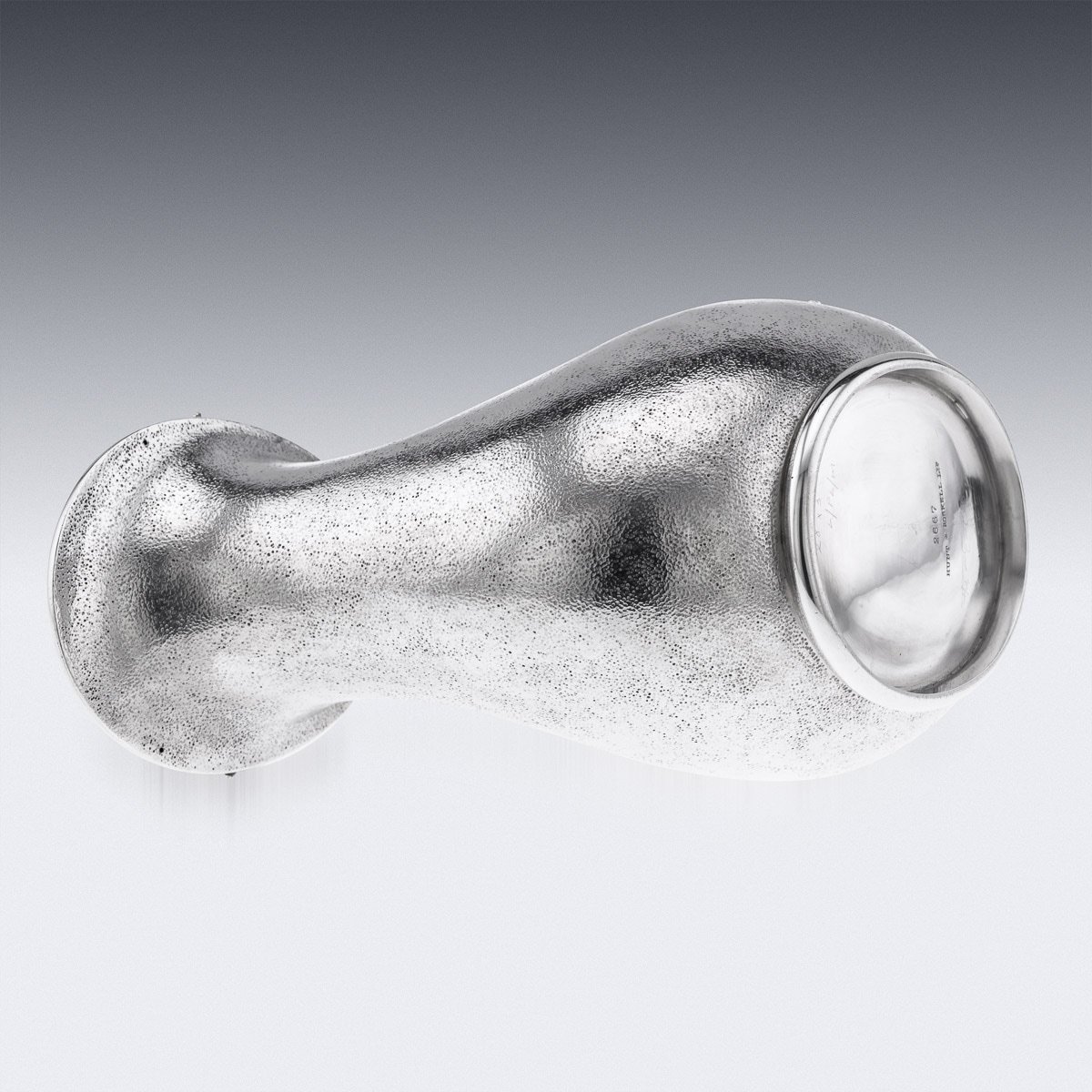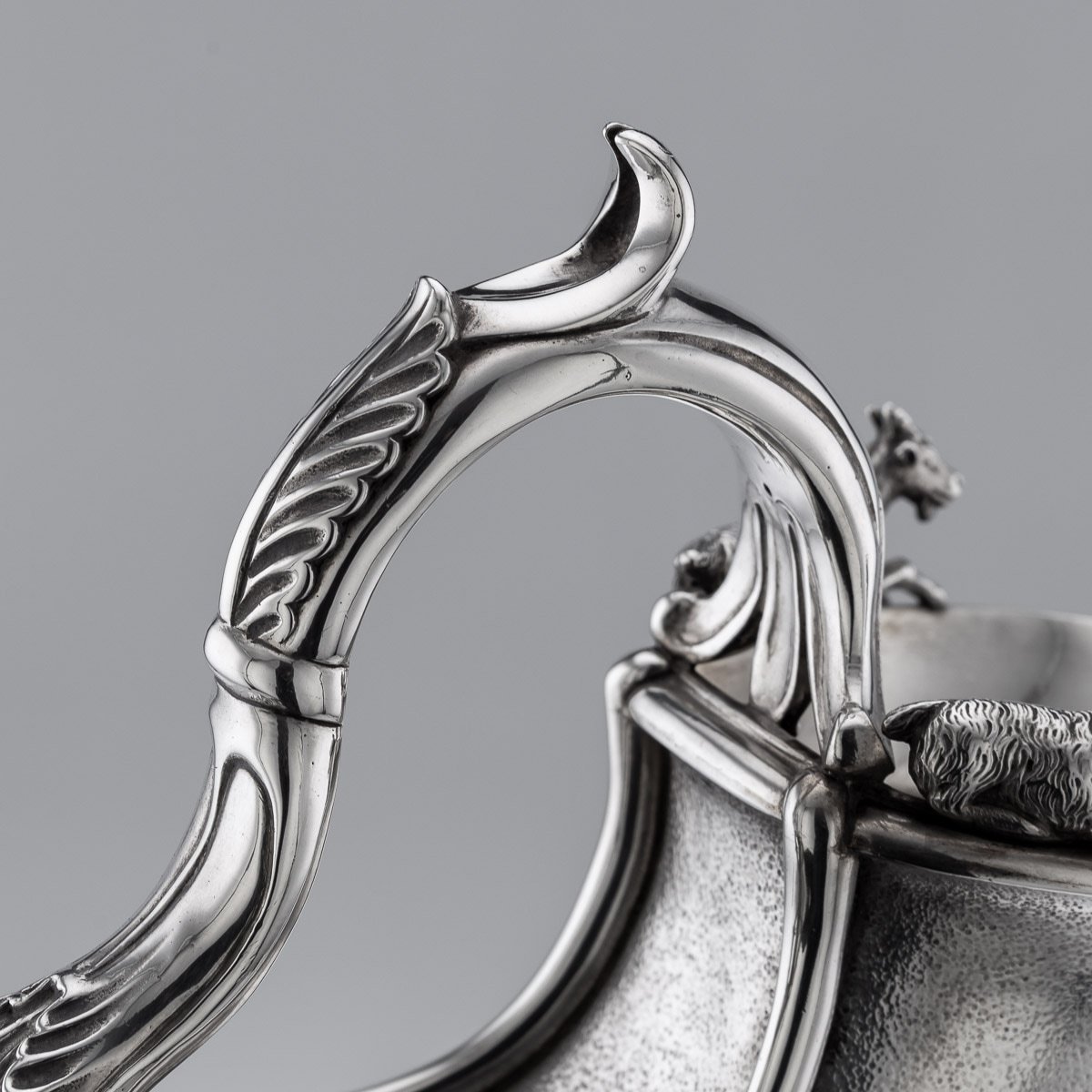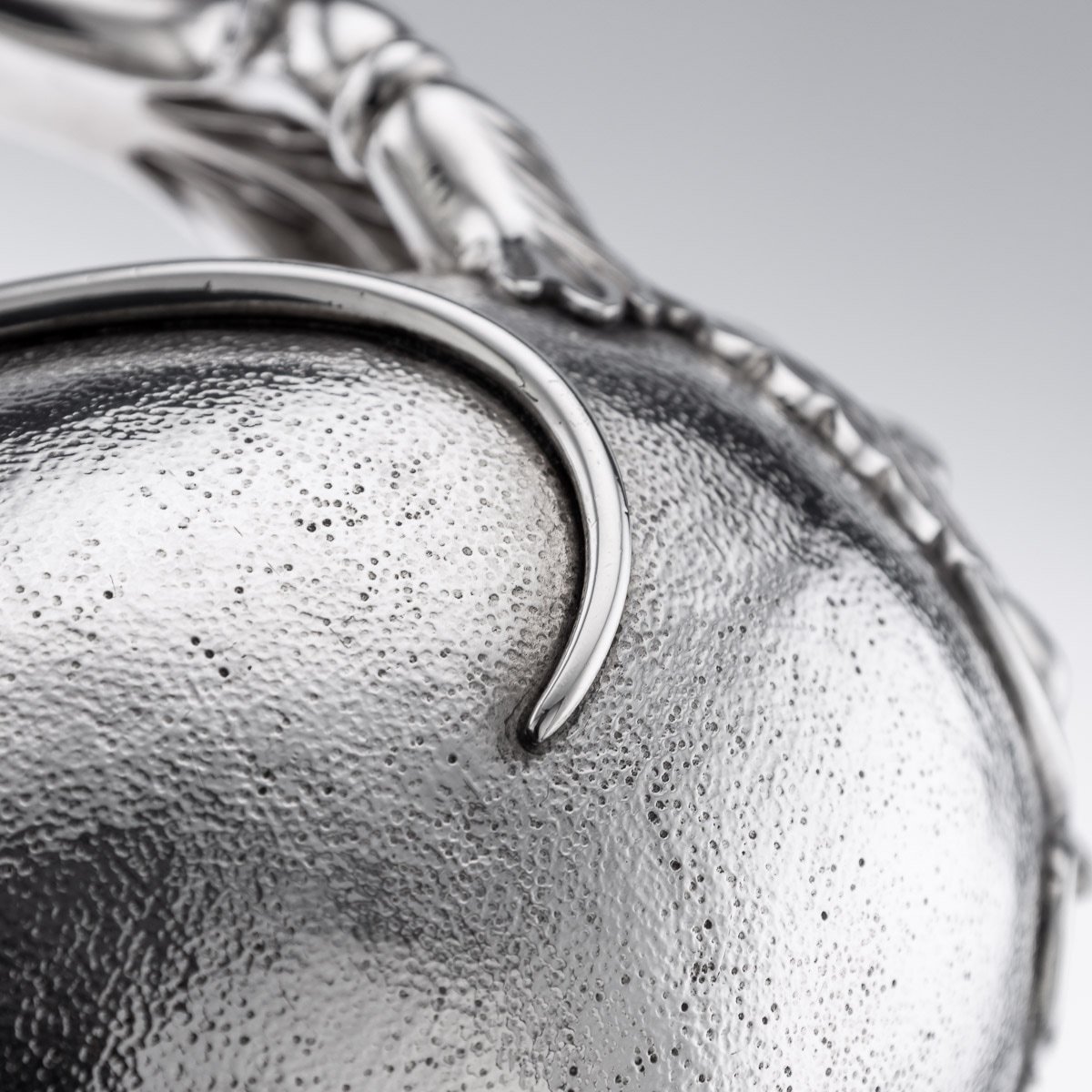 Image 1 of 21
Image 1 of 21

 Image 2 of 21
Image 2 of 21

 Image 3 of 21
Image 3 of 21

 Image 4 of 21
Image 4 of 21

 Image 5 of 21
Image 5 of 21

 Image 6 of 21
Image 6 of 21

 Image 7 of 21
Image 7 of 21

 Image 8 of 21
Image 8 of 21

 Image 9 of 21
Image 9 of 21

 Image 10 of 21
Image 10 of 21

 Image 11 of 21
Image 11 of 21

 Image 12 of 21
Image 12 of 21

 Image 13 of 21
Image 13 of 21

 Image 14 of 21
Image 14 of 21

 Image 15 of 21
Image 15 of 21

 Image 16 of 21
Image 16 of 21

 Image 17 of 21
Image 17 of 21

 Image 18 of 21
Image 18 of 21

 Image 19 of 21
Image 19 of 21

 Image 20 of 21
Image 20 of 21

 Image 21 of 21
Image 21 of 21






















ANTIQUE 20thC EDWARDIAN SOLID SILVER ASKOS JUG, HUNT & ROSKELL, LONDON c.1905
20th Century Edwardian silver Askos jug, applied with an openwork acanthus-capped handle with putto terminal on matted ground, the rim applied with two fully-modeled rams, inside richly parcel gilt.
Hallmarked English silver (925), London, year 1905 (k), Maker H&R LTD (Hunt & Roskell)
Reference Number: A8223
20th Century Edwardian silver Askos jug, applied with an openwork acanthus-capped handle with putto terminal on matted ground, the rim applied with two fully-modeled rams, inside richly parcel gilt.
Hallmarked English silver (925), London, year 1905 (k), Maker H&R LTD (Hunt & Roskell)
Reference Number: A8223
20th Century Edwardian silver Askos jug, applied with an openwork acanthus-capped handle with putto terminal on matted ground, the rim applied with two fully-modeled rams, inside richly parcel gilt.
Hallmarked English silver (925), London, year 1905 (k), Maker H&R LTD (Hunt & Roskell)
Reference Number: A8223
DESCRIPTION
Antique early-20th Century Edwardian solid silver Askos jug, applied with an openwork acanthus-capped handle with putto terminal on matted ground, the rim applied with two fully-modeled rams, inside richly parcel gilt. Hallmarked English silver (925 standard), London, year 1905 (k), Maker H&R LTD (Hunt & Roskell)
This prestigious firm of jewellers and silversmiths was originally founded by Paul Storr in 1819 when he left Rundell & Bridge to go in partnership with John Mortimer. John Samuel Hunt joined the company after his apprenticeship with Paul Storr and took his place after he retired in 1838, changing the name of the company to Mortimer and Hunt. In 1843 John Mortimer retired and the firm became finally Hunt and Roskell. At that time it counted three partners: John Samuel Hunt, his son and Robert Roskell Jr. (son of a watchmaker from Liverpool).
The firm was based in Bond Street, London and gained, presumably in the late 1840s, the Royal Warrant of Queen Victoria. Creating finely ornate centrepieces, tea sets, candelabra as well as impressive jewellery, they also received the appreciation of the Imperial Russian Court, that commissioned several pieces. Their silverware is often naturalistically modelled and exquisitely detailed, decorated with floral and vegetal motifs and scrolling patterns.
The firm exhibited at the Great Exhibition at the Crystal Palace in London in 1851 and subsequently in New York (1853) and Paris (1867) growing in popularity and prosperity not just in England but also abroad.
After the death of John Hunt and Robert Ruskell, their sons kept running the business.
The company became a Limited company and survived until the late 1960’s.
Askos is the name given in modern terminology to a type of ancient Greek pottery vessel used to pour small quantities of liquids such as oil. It is recognisable from its flat shape and a spout at one or both ends that could also be used as a handle. They were usually painted decoratively like vases and were mainly used for storing oil and refilling oil lamps. These were extensively traded in and around the Mediterranean. An example of this is UC47602 in the Petrie Museum's collection, which is a black glazed vessel with an almost metallic appearance and was originally produced in Greece (the main production was in Attica) and was excavated in Memphis.
CONDITION
In Great Condition - No Damage.
SIZE
Height: 23cm
Width: 21 x 11cm
Weight: 870g
